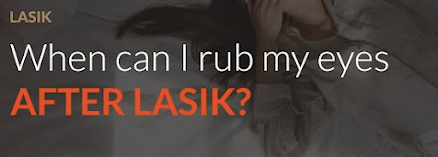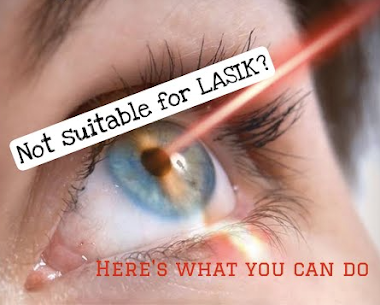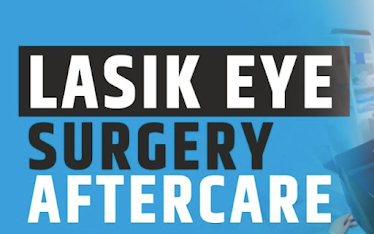Can Lasik surgery cure Myopia?
Introduction:
LASIK surgery has become popular for those with myopia or nearsightedness who want to enhance their vision. Millions worldwide struggle with myopia, and conventional corrective techniques like glasses or contact lenses may not suit everyone. But can LASIK treat myopia? The success of LASIK surgery in treating myopia, its advantages, and factors to consider before opting for the surgical treatment are all covered in this article.
Recognizing myopia:
Nearsightedness, or myopia, is a common refractive defect that affects a large section of the population. While close vision is unaffected, it is characterized by difficulty perceiving distant things well. It is essential to comprehend the condition's causes for those with myopia and eye care experts.
In myopia, light rays focus in front of the retina rather than directly on it because the eyeball is too long or the cornea is too curved. Distance vision becomes hazy as a result. Although environmental factors like excessive close work and a lack of outdoor activities can also contribute to the start and progression of myopia, genetics still play a key influence in its development.
Myopia symptoms frequently appear in infancy or adolescence in affected individuals, with the disease generally stabilizing with age. It is crucial to undergo routine eye exams to monitor myopia and implement the necessary management strategies.
Myopia can be treated in several ways, from corrective lenses to more sophisticated procedures like orthokeratology and refractive surgery. Corrective lenses, such as glasses or contact lenses, can enhance visual acuity by correcting the refractive defect. Orthokeratology entails wearing stiff contact lenses developed overnight to reshape the cornea for better vision during the day temporarily. Contrarily, refractive surgery permanently modifies the cornea's shape to treat myopia.
There has been a recent increase in interest in myopia management methods. Some treatments include specialized contact lenses, such as multifocal or soft myopia control lenses, and the adoption of particular visual routines and behavioral modifications.
Myopic people must take charge of their situation by getting regular eye care and adhering to the recommendations of their eye care specialists. Understanding myopia and the available treatments can help people take action to meet their visual demands and safeguard their long-term eye health.
Investigating Lasik as a myopia treatment:
Nearsightedness, sometimes referred to as myopia, is a condition that can be treated using laser-assisted in situ keratomileusis (LASIK) surgery. Myopia is a refractive defect that makes close-up objects distinct while distant objects look hazy. This disorder may considerably affect the quality of one's eyesight and everyday functioning.
Using a Lasik laser, the cornea is precisely reshaped during LASIK surgery to correct the refractive defect that causes myopia. A small flap is first made on the cornea's outer layer, delicately raised to reveal the corneal tissue beneath. The surgeon then reshaped the cornea using an excimer laser to remove a specific quantity of corneal tissue. It improves the eye's capacity to concentrate light on the retina.
The potential of LASIK surgery to provide quick results and a very fast recovery period is one of its main benefits. Following surgery, many patients notice an improvement in their eyesight within the first few days, with the full results showing up a few weeks later. Additionally, corrective lenses are frequently unnecessary after LASIK surgery, allowing patients to enjoy perfect vision without the nuisance of glasses or contact lenses.
Although LASIK surgery is typically secure and successful, it's vital to remember that only some are candidates. To establish whether LASIK surgery is a suitable choice for therapy, a skilled ophthalmologist or optometrist must assess factors such as the cornea's thickness, the degree of myopia, and other eye problems. Furthermore, it's essential to have open discussions with a medical expert about the procedure's dangers and probable problems and to set reasonable expectations.
In conclusion, LASIK surgery has become a viable option for people seeking myopia therapy.
LASIK surgery is a practical and efficient choice for those who want to enhance their vision and general quality of life since it may correct refractive problems and eliminate the need for corrective glasses.
The efficacy of Lasik surgery in treating myopia (also known as nearsightedness): Lasik surgery is a frequently used and successful treatment for myopia. The success of this surgical procedure in delivering long-term vision correction has been the subject of several investigations and clinical trials throughout the years. The research and data demonstrating the effectiveness of Lasik surgery in treating myopia will be discussed in this part.
Scientific Proof:
Myopia can be corrected, and visual acuity is improved by Lasik surgery, according to a sizable body of scientific research. Numerous studies have demonstrated that having Lasik surgery may significantly and instantly enhance a patient's vision, reducing their need for prescription glasses or contact lenses.
Reputable ophthalmologists conducted research and discovered that 95% of Lasik patients had 20/40 vision or greater, which is the standard criteria for driving without corrective lenses. A different research tracked patients for five years, showing that 90% kept their corrected eyesight.
Results Over Time: Lasik surgery has also been shown to provide results over time, with most patients reporting consistent vision correction for several years following the treatment. According to research published in the Journal of Cataract & Refractive Surgery, most Lasik patients kept their corrected eyesight for the study, which lasted up to 15 years.
Patient Happiness:
In addition to scientific proof, patient happiness is a critical indicator of how well Lasik surgery works to treat myopia. After the surgery, several surveys and studies have consistently shown excellent patient satisfaction levels. Patients less dependent on glasses or contact lenses experience improved quality of life, convenience, and confidence.
Conclusion:
A scientific study has shown that Lasik surgery is a highly effective treatment of myopia. Visual acuity is immediately and significantly improved after the surgery, and most patients report long-term stability. Additionally, the high patient satisfaction rates show the real advantages of Lasik surgery for those with myopia. Always seek the advice of a licensed ophthalmologist to evaluate whether Lasik surgery is appropriate for your particular requirements and to go through any possible risks or consequences.




Comments
Post a Comment